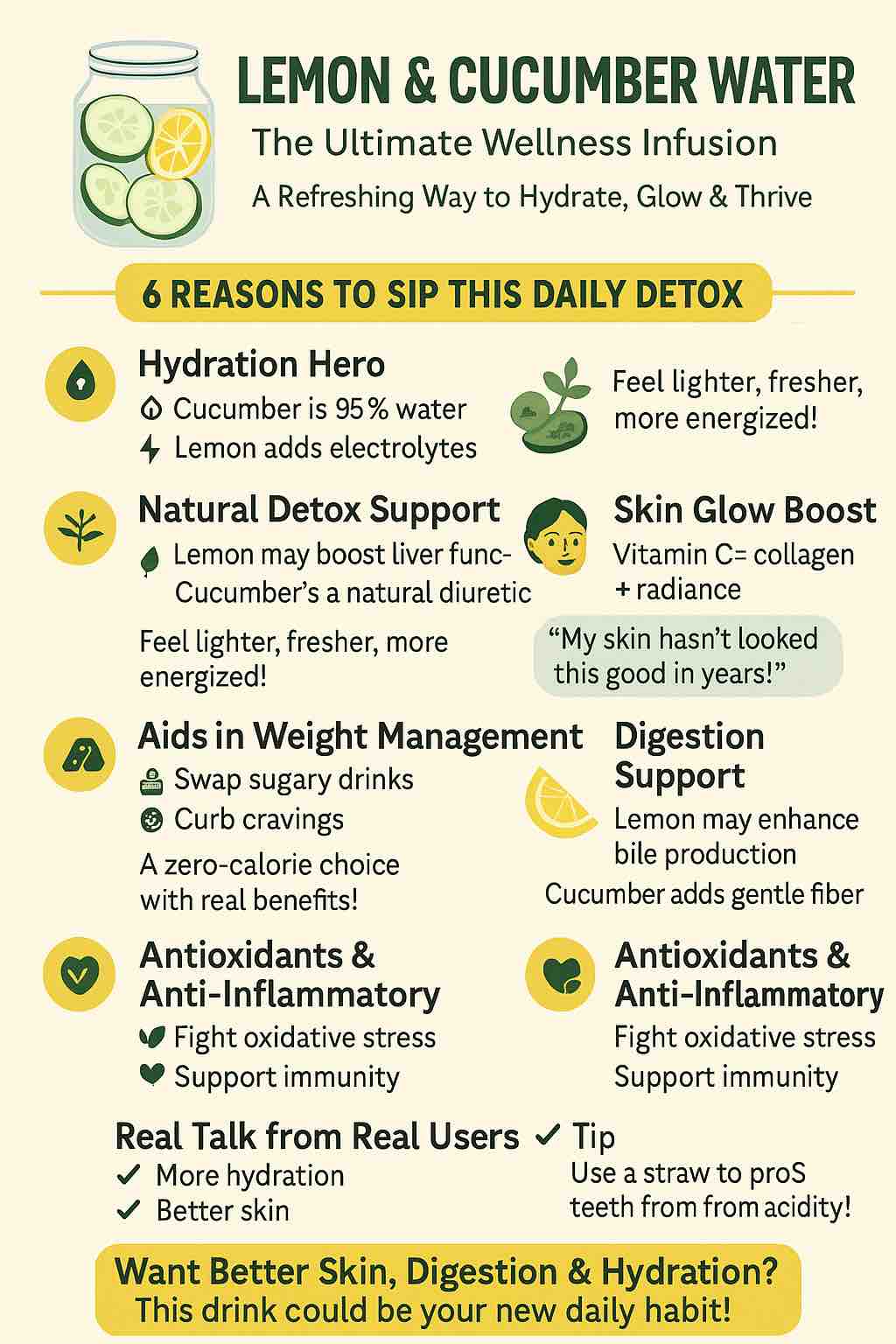
Welcome to the sun-kissed days of summer! As you embark on this radiant journey of motherhood, it’s essential to navigate the unique challenges that come with a summer pregnancy. The warmth of the season, while invigorating, brings with it the need for special care and attention to your changing body. Staying hydrated and comfortable isn’t just a matter of convenience; it’s a vital aspect of your prenatal wellness.
In this comprehensive guide, we dive into the heart of a summer pregnancy. We’ll explore why staying hydrated is more than just drinking water; it’s a lifeline for you and your baby. From understanding the intricate dance of fluids in your body to choosing the right summer wardrobe, each step you take is a step towards a healthier, more comfortable pregnancy.
But it’s not just about beating the heat; it’s about embracing your summer glow with grace and vitality. So, let’s embark on this journey together, equipped with practical tips, thoughtful advice, and the shared wisdom of mothers who’ve walked this sunlit path before. Get ready to make your summer pregnancy a time of joy, comfort, and radiant health!
Section 1: Understanding Hydration in Summer Pregnancy
In the lush landscape of summer, hydration takes on a new level of importance for expectant mothers. The rising temperatures and increased humidity can impact your body in unique ways, especially during pregnancy. Let’s unravel the mysteries of hydration and its critical role during these sun-filled months.
The Science of Hydration
- Physiological Changes: Pregnancy is a time of significant physical changes, including increased blood volume and metabolic demands. These changes are intensified by summer heat, making hydration more critical.
- Impact on Mother and Baby: Adequate hydration supports essential functions like nutrient transport to the baby and helps maintain amniotic fluid levels. It’s not just about quenching thirst – it’s about creating the best environment for your baby’s growth.
Hydration and Body Temperature Regulation
- Heat Regulation: During pregnancy, your body works harder to regulate its temperature. In summer, this task becomes more challenging, making hydration essential to prevent overheating, which can be harmful to both you and your baby.
- Sweating and Fluid Loss: With higher temperatures, sweating increases, leading to a greater loss of fluids. Replenishing these fluids is vital to avoid dehydration.
Recognizing Dehydration
- Signs to Watch For: Understanding the signs of dehydration is crucial. They can include fatigue, headaches, dizziness, and dark urine. Staying ahead of these symptoms by regularly hydrating is key.
Hydration and Pregnancy Health
- Preventing Complications: Proper hydration can help prevent common pregnancy complications exacerbated by heat, such as urinary tract infections, constipation, and even preterm labor.
- Maintaining Energy Levels: Adequate fluid intake can also help maintain energy levels and reduce the risk of fatigue, common in pregnancy, especially during hot weather.
Hydration Tips for Summer Pregnancy
- Water is Best: While there are many hydration choices, water is the most effective. It’s calorie-free, caffeine-free, and readily absorbs by your body.
- How Much to Drink: The general recommendation is at least 8-12 glasses of water a day, but this can vary. Listen to your body and adjust as needed.
- Flavoring Your Water: If plain water doesn’t appeal, try adding slices of lemon, lime, cucumber, or berries to enhance the taste naturally.
- Other Hydration Sources: Coconut water, herbal teas, and homemade fruit-infused waters can be excellent alternatives for hydration. Be cautious with beverages high in sugar or caffeine.
Staying Hydrated On the Go
- Portable Water Bottles: Keep a water bottle with you at all times. Consider an insulated bottle that keeps your water cool.
- Hydration Apps: Use technology to your advantage. There are numerous apps available to remind you to drink water throughout the day.
In the next section, we’ll dive into choosing the right clothing for summer pregnancy, ensuring you stay cool, comfortable, and stylish as you navigate these warm months.
Section 2: Dressing for Summer Pregnancy Comfort
Navigating summer pregnancy requires not just internal hydration but also external comfort, primarily achieved through the right clothing choices. The clothes you wear can significantly impact how you handle the summer heat, ensuring both comfort and style as your body changes.
The Importance of Choosing the Right Fabrics
- Breathable Materials: Opt for natural, breathable fabrics like cotton, linen, and bamboo. These materials allow better air circulation and help wick away sweat, keeping you cooler.
- Avoiding Synthetic Fabrics: Synthetic materials like polyester can trap heat, exacerbating discomfort in hot weather. Staying away from these fabrics can help minimize overheating.
Design and Fit for Pregnancy Comfort
- Loose-Fitting Clothing: Comfort is key during pregnancy, especially in summer. Loose-fitting clothing not only helps you stay cool but also accommodates your growing belly.
- Maternity Wear Options: Modern maternity wear offers a wide range of summer-friendly options. Look for clothes that are specifically designed for pregnancy, offering both comfort and style.
- Layering for Temperature Control: Light layering can be helpful. A breathable sundress with a light, open cardigan allows for easy adjustment as temperatures change throughout the day.
Protective Wear for Sun Exposure
- Sun Hats and Sunglasses: Protect your face and eyes from the harsh summer sun with wide-brimmed hats and UV-protective sunglasses.
- Cover-ups for Swimsuits: When planning a day at the pool or beach, include a light cover-up to protect your skin from direct sunlight.
Footwear Considerations
- Comfortable and Supportive Shoes: Choose footwear that offers support and comfort. Swelling in the feet is common in pregnancy, so avoid tight shoes. Opt for sandals or slip-ons that allow for easy adjustment.
- Avoiding High Heels: High heels can be uncomfortable and pose a risk of imbalance. Flat or low-heeled shoes are safer and more comfortable options for summer pregnancy.
Dressing for Different Summer Occasions
- Casual Outfits: For everyday wear, maxi dresses, maternity shorts with stretchy waistbands, and lightweight tunic tops can be both stylish and comfortable.
- Formal Wear: For more formal occasions, look for maternity dresses in breathable fabrics that offer a combination of elegance and comfort.
Accessorizing Your Summer Maternity Wardrobe
- Functional Accessories: Consider functional accessories like a small, portable fan or a cooling scarf that can be used for instant relief from the heat.
- Jewelry Considerations: With swelling being a common pregnancy symptom, opt for adjustable or loose-fitting jewelry.
Styling Tips for Summer Pregnancy
- Embracing Your Shape: Pregnancy is a time to embrace your changing body. Choose clothes that make you feel confident and comfortable.
- Color Choices: Lighter colors not only reflect heat but can also brighten your mood. Summer is a great time to experiment with pastels and vibrant hues.
- Mix and Match: Build a capsule maternity wardrobe for summer with pieces that can be mixed and matched for different looks.
In the next section, we will explore effective ways to beat the summer heat, focusing on strategies beyond clothing to keep you cool and comfortable throughout your pregnancy.
Section 3: Beating the Summer Heat During Pregnancy
As the summer sun blazes, finding ways to stay cool becomes a top priority for expectant mothers. This section delves into various strategies to help you manage the heat effectively, ensuring both your comfort and your baby’s well-being.
Creating a Cool Living Environment
- Optimizing Home Cooling: Use fans and air conditioning to maintain a comfortable temperature at home. Consider the strategic placement of fans for optimal air circulation.
- Managing Sunlight: Keep curtains and blinds closed during the hottest part of the day to minimize heat build-up indoors.
- Cooling Gadgets: Invest in cooling gadgets like portable fans or misting devices, which can be especially handy during heatwaves.
Water-Based Cooling Methods
- Swimming for Relief: Swimming is an excellent way to stay cool and provides gentle exercise. The buoyancy can also relieve pressure on joints and muscles. If you don’t have access to a pool, consider a cooling bath or shower.
- Using Cooling Towels: Cooling towels, soaked in water and placed around your neck or forehead, can provide immediate relief from the heat.
Adjusting Daily Routines
- Timing Outdoor Activities: Schedule outdoor activities during cooler parts of the day, such as early morning or late evening, to avoid peak heat times.
- Indoor Exercise Options: If outdoor activities become too strenuous, switch to indoor exercises like prenatal yoga or low-impact aerobics, preferably in air-conditioned spaces.
Dietary Adjustments for Heat Management
- Hydration-Focused Diet: Include foods with high water content in your diet, like fruits and vegetables, to aid in hydration.
- Light Meals: Opt for smaller, lighter meals to avoid feeling overheated. Heavy meals can increase body temperature and lead to discomfort.
Rest and Relaxation
- Prioritizing Rest: Pregnancy can be taxing on your energy levels, and the summer heat can exacerbate this. Ensure you get plenty of rest, and don’t hesitate to take naps during the hottest parts of the day.
- Relaxation Techniques: Practice relaxation methods such as deep breathing, meditation, or gentle stretching to stay calm and cool.
Staying Informed and Prepared
- Heat Exhaustion Awareness: Be aware of the signs of heat exhaustion, which can include dizziness, nausea, and excessive sweating. If you experience these symptoms, seek a cooler environment and hydrate immediately.
- Emergency Preparedness: Have a plan for days with extreme heat advisories. This could include having a list of cool, air-conditioned places to retreat to if your home becomes too hot.
Staying Safe in the Heat
- Wearing Sunscreen: Protect your skin with a high-SPF, pregnancy-safe sunscreen. Hormonal changes during pregnancy can make your skin more sensitive to the sun.
- Heatstroke Prevention: Understand the signs of heatstroke, a more severe form of heat illness, and know when to seek medical attention.
By implementing these strategies, you can effectively manage the challenges of a summer pregnancy, keeping both you and your baby safe and comfortable. In the next section, we will explore how to manage and minimize swelling, a common summer pregnancy issue, through various practical tips and lifestyle adjustments.
Section 3: Beating the Summer Heat During Pregnancy
As the summer sun blazes, finding ways to stay cool becomes a top priority for expectant mothers. This section delves into various strategies to help you manage the heat effectively, ensuring both your comfort and your baby’s well-being.
Creating a Cool Living Environment
- Optimizing Home Cooling: Use fans and air conditioning to maintain a comfortable temperature at home. Consider the strategic placement of fans for optimal air circulation.
- Managing Sunlight: Keep curtains and blinds closed during the hottest part of the day to minimize heat build-up indoors.
- Cooling Gadgets: Invest in cooling gadgets like portable fans or misting devices, which can be especially handy during heatwaves.
Water-Based Cooling Methods
- Swimming for Relief: Swimming is an excellent way to stay cool and provides gentle exercise. The buoyancy can also relieve pressure on joints and muscles. If you don’t have access to a pool, consider a cooling bath or shower.
- Using Cooling Towels: Cooling towels, soaked in water and placed around your neck or forehead, can provide immediate relief from the heat.
Adjusting Daily Routines
- Timing Outdoor Activities: Schedule outdoor activities during cooler parts of the day, such as early morning or late evening, to avoid peak heat times.
- Indoor Exercise Options: If outdoor activities become too strenuous, switch to indoor exercises like prenatal yoga or low-impact aerobics, preferably in air-conditioned spaces.
Dietary Adjustments for Heat Management
- Hydration-Focused Diet: Include foods with high water content in your diet, like fruits and vegetables, to aid in hydration.
- Light Meals: Opt for smaller, lighter meals to avoid feeling overheated. Heavy meals can increase body temperature and lead to discomfort.
Rest and Relaxation
- Prioritizing Rest: Pregnancy can be taxing on your energy levels, and the summer heat can exacerbate this. Ensure you get plenty of rest, and don’t hesitate to take naps during the hottest parts of the day.
- Relaxation Techniques: Practice relaxation methods such as deep breathing, meditation, or gentle stretching to stay calm and cool.
Staying Informed and Prepared
- Heat Exhaustion Awareness: Be aware of the signs of heat exhaustion, which can include dizziness, nausea, and excessive sweating. If you experience these symptoms, seek a cooler environment and hydrate immediately.
- Emergency Preparedness: Have a plan for days with extreme heat advisories. This could include having a list of cool, air-conditioned places to retreat to if your home becomes too hot.
Staying Safe in the Heat
- Wearing Sunscreen: Protect your skin with a high-SPF, pregnancy-safe sunscreen. Hormonal changes during pregnancy can make your skin more sensitive to the sun.
- Heatstroke Prevention: Understand the signs of heatstroke, a more severe form of heat illness, and know when to seek medical attention.
By implementing these strategies, you can effectively manage the challenges of a summer pregnancy, keeping both you and your baby safe and comfortable. In the next section, we will explore how to manage and minimize swelling, a common summer pregnancy issue, through various practical tips and lifestyle adjustments.
Section 4: Managing Swelling and Discomfort in Summer Pregnancy
Swelling, also known as edema, is a common concern for many pregnant women, especially during the hotter months. This section offers detailed guidance on how to manage and minimize swelling, ensuring greater comfort throughout your summer pregnancy.
Understanding Swelling in Pregnancy
- Causes of Swelling: During pregnancy, your body retains more fluid and your growing uterus puts pressure on your veins, impacting normal blood flow. This can lead to swelling, often noticeable in the feet, ankles, and hands.
- Heat and Swelling: The summer heat can exacerbate swelling due to the natural expansion of blood vessels in warmer temperatures.
Practical Tips to Reduce Swelling
- Elevate Your Legs: Whenever possible, elevate your legs to improve circulation. This can be especially effective if done several times a day for about 15-20 minutes each time.
- Stay Cool: Keeping your body cool can help reduce the dilation of blood vessels and subsequent swelling. Utilize fans, air conditioning, and cooling towels to maintain a comfortable body temperature.
- Movement and Exercise: Regular, gentle exercise can improve blood flow and reduce swelling. Swimming, in particular, can be highly beneficial as the water pressure helps move fluid back into the veins.
Dietary Considerations
- Hydration: Ironically, increasing water intake can actually help reduce swelling. The body holds onto fluid if it senses dehydration, so keeping well-hydrated can encourage fluid release.
- Limit Salt Intake: While some salt is necessary, too much can cause the body to retain water. Opt for natural, low-sodium foods and avoid processed foods high in salt.
- Potassium-Rich Foods: Foods high in potassium can help balance fluid levels in the body. Bananas, spinach, and avocados are great options.
Comfort Measures
- Comfortable Footwear: Choose shoes that are supportive and comfortable. Swelling can make your usual shoe size feel tight, so consider footwear that offers more room and is easy to put on.
- Compression Socks: Compression socks or stockings can provide relief by applying gentle pressure to your legs, helping to prevent fluid from accumulating in your lower limbs.
- Cool Water Soaks: Soaking your feet in cool water can provide immediate relief from swelling and discomfort.
Monitoring Swelling
- Normal vs. Concerning Swelling: While some swelling is normal, sudden or severe swelling in the hands, face, or around the eyes should be discussed with your healthcare provider, as it can be a sign of preeclampsia, a serious condition.
- Daily Checks: Keep an eye on the severity of your swelling. If you press on your skin and it leaves a deep indent, or if your swelling is accompanied by other symptoms like headache or vision changes, seek medical advice.
Integrating Swelling Management into Your Routine
- Routine Adjustments: Incorporate leg elevation, cool foot soaks, and regular movement into your daily routine.
- Workplace Considerations: If you’re working, find ways to elevate your feet at your desk and take short, frequent breaks to walk around.
- Evening Care: In the evening, prioritize resting with your feet up and avoid activities that could exacerbate swelling.
By understanding and addressing swelling through these practical measures, you can significantly enhance your comfort during a summer pregnancy. In the next section, we’ll shift our focus to strategies for dealing with heat exposure, including both preventive measures and ways to cool down when the summer sun becomes overwhelming.
Section 5: Dealing with Heat Exposure in Summer Pregnancy
Dealing effectively with heat exposure is a key aspect of managing a summer pregnancy. This section provides a comprehensive overview of strategies to prevent overheating and maintain a comfortable body temperature, ensuring both maternal and fetal well-being during the warmer months.
Understanding Heat Exposure Risks
- Impact on Pregnancy: Excessive heat exposure can lead to overheating and dehydration, posing risks such as heat exhaustion, heatstroke, and increased discomfort.
- Signs of Overheating: Be aware of symptoms like excessive sweating, dizziness, fatigue, and rapid heartbeat. These can be signs that your body is struggling to cope with the heat.
Preventive Strategies
- Timing Outdoor Activities: Plan outdoor activities during the cooler parts of the day, such as early morning or late evening. Avoid strenuous activities during the hottest hours.
- Appropriate Clothing: Wear light-colored, loose-fitting clothes that reflect the sun’s rays and help keep your body cool.
- Hydration: Maintain a regular intake of fluids to prevent dehydration. Carry water with you and take frequent sips throughout the day, especially when outside.
Cooling Techniques
- Use of Cooling Products: Consider using products like cooling gels, misting fans, or damp cloths to help lower your body temperature.
- Finding Shade: When outdoors, seek shade under trees, umbrellas, or canopies to minimize direct sun exposure.
- Indoor Cooling: Utilize air conditioning or fans indoors. If AC is not available, keep windows open for ventilation and use blinds or curtains to block direct sunlight.
Safe Exercise Practices
- Low-Impact Activities: Choose low-impact exercises like walking, prenatal yoga, or swimming, which are less likely to cause overheating.
- Hydration and Rest Breaks: Ensure you stay hydrated during exercise and take regular breaks to rest and cool down.
Dietary Adjustments
- Cooling Foods: Incorporate foods with high water content, like salads, fruits, and vegetables, which can help keep your body temperature down.
- Avoiding Hot and Spicy Foods: Hot and spicy foods can increase body heat, so it might be beneficial to limit these during extreme heat.
Listening to Your Body
- Monitoring for Heat Stress: Pay attention to how your body feels in the heat. If you start feeling unwell, move to a cooler environment immediately.
- Rest and Relaxation: Prioritize rest on hot days. Overexerting yourself in high temperatures can lead to heat-related illnesses.
Emergency Measures
- Recognizing Heat Emergencies: Learn to recognize the signs of heat emergencies like heat exhaustion and heatstroke. These require immediate action and, in some cases, medical attention.
- Staying Informed: Keep abreast of weather forecasts and heat advisories, especially on days with extreme temperatures, and plan accordingly.
By implementing these strategies, you can significantly mitigate the risks associated with heat exposure during a summer pregnancy. In our next section, we will explore the importance of nutrition and how it plays a crucial role in managing summer pregnancy challenges.
Section 6: Navigating Nutrition for Summer Pregnancy Health
In the journey of summer pregnancy, nutrition plays a pivotal role in not only managing the heat but also in ensuring the health and well-being of both mother and baby. This section delves into nutritional strategies tailored for summer, focusing on foods that are both nourishing and cooling.
Balancing Hydration and Nutrition
- Hydration Through Foods: Emphasize the importance of consuming foods with high water content. Fruits like watermelon, berries, and cucumbers not only hydrate but also provide essential vitamins and minerals.
- Smoothies and Cold Soups: Incorporate smoothies and cold soups into your diet. These can be made with a variety of fruits, vegetables, and yogurts, offering a refreshing way to stay nourished and hydrated.
Diet for Heat Management
- Light and Frequent Meals: Opt for smaller, more frequent meals rather than heavy, large meals. Eating lightly can prevent feeling overly full and uncomfortable, especially in the heat.
- Cooling Foods: Focus on foods that are naturally cooling. Leafy greens, mint, and citrus fruits can have a cooling effect on the body.
Avoiding Certain Foods
- Spicy and Hot Foods: While some spicy foods have health benefits, they can also increase body heat. In the summer months, you might want to moderate the intake of such foods.
- Processed and High-Sodium Foods: Processed foods can be high in sodium, which might contribute to water retention and swelling. Opt for fresh, whole foods as much as possible.
Nutritional Needs During Pregnancy
- Essential Nutrients: Pay attention to getting enough essential nutrients like folic acid, iron, calcium, and vitamins D and B12. These are crucial for the development of the baby and the health of the mother.
- Prenatal Vitamins: Continue taking prenatal vitamins as advised by your healthcare provider to ensure you’re getting the necessary nutrients that might be difficult to obtain solely from diet.
Safe Cooking Practices
- Food Safety in Summer: Be mindful of food safety, especially in summer. Higher temperatures can increase the risk of food spoilage and foodborne illnesses.
- Raw and Undercooked Foods: Avoid raw or undercooked meats and fish to reduce the risk of bacterial infections, which can be more harmful during pregnancy.
Integrating Nutrition into Daily Life
- Meal Planning: Plan your meals to include a variety of nutrient-rich, hydrating foods. Preparing meals in advance can also help you maintain a balanced diet on hotter days when cooking might feel more taxing.
- Snacking Wisely: Choose healthy, cooling snacks such as yogurt, fruit salads, and nuts. These can provide energy and nutrition without causing discomfort in the heat.
Listening to Your Body
- Understanding Cravings: It’s common to experience cravings during pregnancy. While it’s okay to indulge occasionally, try to maintain a balance with healthy food choices.
- Signs of Nutritional Imbalance: Be aware of signs that might indicate nutritional deficiencies, such as unusual fatigue or cravings for non-food items (pica), and discuss these with your healthcare provider.
By focusing on a balanced, hydrating, and cooling diet, you can effectively navigate the nutritional challenges of a summer pregnancy. This approach not only helps in managing the heat but also ensures that you are providing the best for your growing baby. In our next section, we’ll explore relaxation techniques and the importance of mental well-being during these warm summer months.
Conclusion: Embracing a Healthy, Happy Summer Pregnancy
As we draw this comprehensive guide to a close, it’s important to reflect on the key themes that have been discussed. Navigating a summer pregnancy can indeed be challenging, but with the right strategies and a focus on self-care, it can also be a period filled with joy and anticipation.
Key Takeaways:
- Hydration is Crucial: Remember, staying hydrated goes beyond just drinking water. It’s about maintaining a balance that supports both you and your baby’s health.
- Comfort in Clothing and Environment: Choosing the right clothing and creating a comfortable living space are essential steps in managing the summer heat.
- Nutrition and Well-being: A balanced diet, rich in hydrating foods and essential nutrients, plays a vital role in your summer pregnancy journey.
- Mindfulness and Rest: Mental well-being is just as important as physical health. Practices like yoga, meditation, and prioritizing rest can significantly enhance your pregnancy experience.
Embracing the Journey:
This time in your life is unique and fleeting. While it comes with its set of challenges, especially during the warmer months, remember to embrace the beauty of your growing family. Take each day as it comes, listen to your body, and don’t hesitate to seek support when needed.
Preparing for What’s Ahead:
As you look forward to meeting your little one, let the lessons and habits you’ve formed during this summer pregnancy guide you. The care, attention, and love you’ve invested in yourself are the very foundation of the care you’ll soon give to your newborn.
Wishing you a healthy, comfortable, and joyful pregnancy journey. May this summer be a time of beautiful growth and preparation for the exciting chapter ahead.
FAQs
- How much water should I drink during a summer pregnancy?
- Aim for at least 8-12 glasses of water daily. Increase this amount if you’re active or it’s particularly hot.
- What are the best types of clothing for summer pregnancy?
- Opt for loose, breathable fabrics like cotton or linen. Light colors are better as they reflect the sun’s rays.
- How can I tell if I’m getting dehydrated?
- Signs of dehydration include headaches, dizziness, dark urine, and feeling excessively thirsty.
- Is it safe to swim during pregnancy in the summer?
- Yes, swimming is safe and beneficial as it cools you down and provides low-impact exercise.
- What foods are good for staying hydrated?
- Eat fruits and vegetables with high water content, such as watermelon, cucumbers, and berries.
- How can I sleep better during hot summer nights?
- Use light bedding, a pregnancy pillow for support, and keep the room cool with a fan or air conditioning.
- Are there any cooling products that can help in summer pregnancy?
- Cooling towels, misting fans, or damp cloths can provide immediate relief from the heat.
- How can I safely exercise during a summer pregnancy?
- Focus on low-impact activities during cooler parts of the day and stay hydrated.
- What are some ways to manage swelling during summer pregnancy?
- Elevate your feet, stay hydrated, wear comfortable shoes, and avoid standing for long periods.
- Can summer heat affect my baby?
- Extreme heat can be stressful for you, which in turn can affect your baby. Staying cool and hydrated helps ensure both your well-being.
Blog Tags for the Post: Summer Pregnancy, Hydration Tips, Pregnancy Health, Maternal Wellness, Pregnancy Nutrition, Heat Management, Comfortable Maternity Wear, Pregnancy Exercise, Mental Health in Pregnancy, Pregnancy Relaxation Techniques














